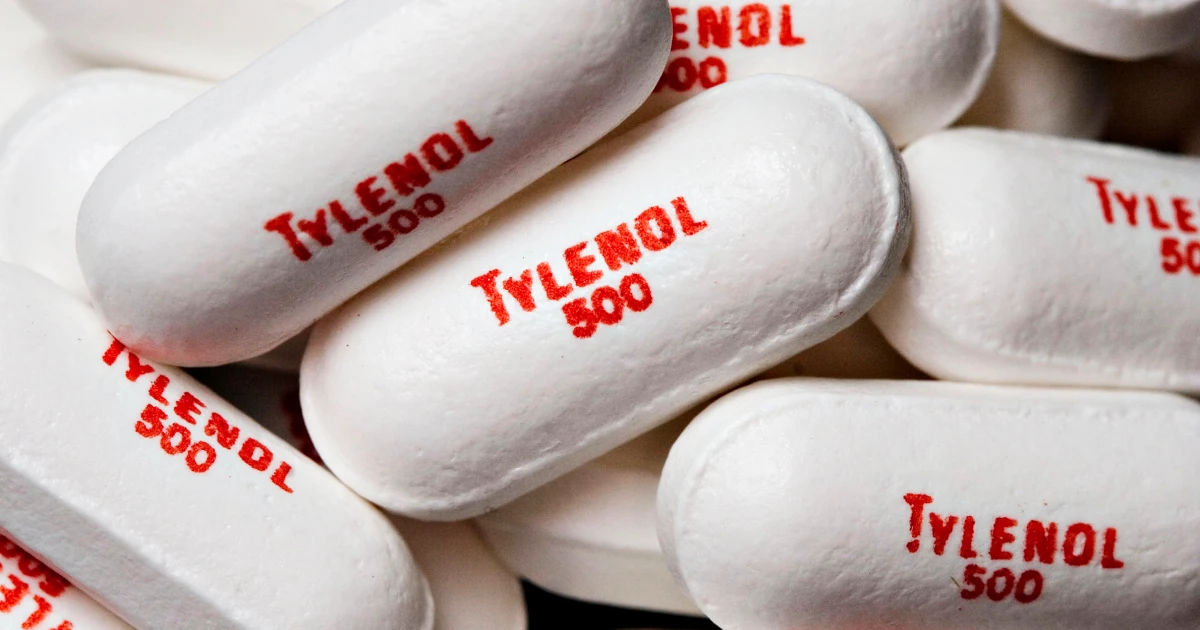
LONDON — Health officials across the globe on Tuesday rejected President Donald Trump’s warning that pregnant women should limit the use of Tylenol over unsubstantiated claims of a link to autism.
Authorities from Australia to Europe moved swiftly to respond to the U.S. announcement, which Trump made with great fanfare while flanked by Health Secretary Robert F. Kennedy Jr.
“Don’t take Tylenol. Don’t take it. Fight like hell not to take it,” Trump said.
But a range of experts worldwide noted there was not conclusive evidence to support the possible association between autism and acetaminophen — the active ingredient in Tylenol and other widely used medications — and no new evidence to warrant a change in guidance.
“Available evidence has found no link between the use of paracetamol during pregnancy and autism,” said the European Medicines Agency (EMA). Paracetamol is a widely used name for Tylenol beyond the U.S.
The EMA said it would not be making changes to the region’s current recommendations, maintaining that pregnant women should take the lowest effective dose of the drug for the shortest possible time and as infrequently as possible.
“A large amount of data from pregnant women who used paracetamol during pregnancy indicates no risk of malformations on the developing fetus or on newborns,” the EMA said in a statement to NBC News.
The World Health Organization said that “the evidence remains inconsistent” regarding any link between the use of Tylenol during pregnancy and autism.
WHO spokesperson Tarik Jašarević cited unspecified studies that pointed to a possible link but said that this was not confirmed by subsequent research. “This lack of replicability really calls for caution in drawing casual conclusions,” he said.
Trump on Monday also suggested that additives in vaccines may cause autism, which the WHO was similarly quick to dispute.
“We know that vaccines do not cause autism. Vaccines, as I said, save countless lives. So, this is something that science has proven, and these things should not be really questioned,” Jašarević told a Geneva press briefing.
Australian health officials were among the first to reject the claims, labelling them “a misrepresentation of the science.”
Australia’s medicines regulator, the Therapeutic Goods Administration, together with the country’s Chief Medical Officer, issued a statement Tuesday saying it was joining other global medicines regulators in repudiating Trump’s claims.
“Robust scientific evidence shows no causal link between the use of paracetamol in pregnancy and autism or ADHD, with several large and reliable studies directly contradicting these claims,” the statement said.
A number of other countries restated their existing guidance, which differs from the new warning issued by the Trump administration.
New Zealand’s Ministry of Health reiterated that its guidance had not changed, describing paracetamol as “the safest medicine to take in pregnancy if you require pain or treatment for fever.”
A spokesperson for the German Health Ministry told NBC News that there was no link between taking paracetamol during pregnancy and developmental abnormalities. “In certain situations, taking medication is necessary to avoid endangering the mother and unborn child, for example in the case of high fever,” they said in an emailed statement.
The U.K.’s health regulator issued a similar statement, stressing that “paracetamol remains the recommended pain relief option for pregnant women when used as directed.”
“Untreated pain and fever can pose risks to the unborn baby, so it is important to manage these symptoms with the recommended treatment,” Dr Alison Cave, Chief Safety Officer at the MHRA, said in a statement on the agency’s website.
Health Secretary Wes Streeting told ITV early Tuesday: “I would just say to people watching, don’t pay any attention whatsoever to what Donald Trump says about medicine.”
Spain’s health minister, Mónica García Gómez, also called out Trump by name, accusing him of “ignoring all medical studies.”
“Denialism not only destroys trust in science: it puts lives at risk,” she wrote on X on Monday.
Scott White, Chair of the Royal Australian and New Zealand College of Obstetricians and Gynaecologists Women’s Health Committee, said he was “worried” about the messaging from the U.S.
“Paracetamol is safe and actually important to use because pain and fever are associated with adverse neurodevelopmental outcomes themselves,” White told NBC News in a phone interview.
“I’m really worried about the messaging that says pregnant women should just tough it out, that pregnant women should be denied access to pain relief, which is a fundamental human right, it’s every woman’s right,” White said.
“To suggest that women can’t access a medication that we feel has been shown to be safe simply because they’re pregnant women, is misogynistic.”
White cited a study published last year in the Journal of the American Medical Association, which studied 2.5 million children in Sweden. It compared siblings and found no association between acetaminophen use during pregnancy and the risk of autism, ADHD or intellectual disability.
While other studies have previously suggested some kind of link, including research published last month that Trump administration officials are citing, White argues many struggled to exclude factors like genetics or environment.
Outside autism researchers have said that literature review, by researchers from Harvard and the Icahn School of Medicine at Mount Sinai, wasn’t rigorously conducted and that it cherry-picked studies that supported its conclusion.
White also said the reason a woman is taking paracetamol, such as to treat a fever or infection, could be what affects the mental development of the child.
“We know that women who’ve got complicated pregnancies in some way are more likely to go on to have babies that are neurodevelopmentally impacted,” he added, citing fever as a prime example.



